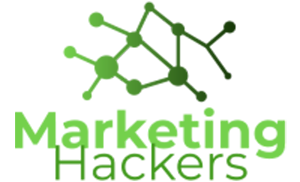Blockchain technology is set to simplify our daily lives across a number of major industries. The blockchain is not only for cryptocurrencies like Bitcoin, though it does power them. Imagine blockchains as decentralized, distributed spreadsheets or databases full of information. Instead of one centralized spreadsheet that all records are written to, blockchains use P2P (peer-to-peer) technology similar to Bit Torrent to store the spreadsheet across numerous, networked computers.
Entries into this blockchain spreadsheet are verified with cryptography and updated in real-time. These blockchains are thus always up-to-date and verified by numerous third parties that ensure that new entries into it are only done by those authorized to do so. Falsifying records in the blockchain would require massive amounts of computing power that simply do not exist—this is where the cryptography aspect of blockchains come into play.
While Bitcoin and other cryptocurrencies are the most obvious uses of blockchain technology, there are other uses. Going back to the analogy of a blockchain as a massive, distributed, encrypted spreadsheet, any contract or information, transaction or edit and then record of those can be stored in a blockchain. This is where the use of blockchains will start to enter our daily lives outside of cryptocurrency.
Any information in a spreadsheet or database can be encrypted into a blockchain. The data in the blockchain is both verifiable and anonymous while being distributed across a vast P2P network and accessible though not readable by everyone. (That is the cryptographical genius of it.) The ramifications of this are immense. Blockchain technology is being researched and discussed for a number of major industries.
Sony has filed a patent on how to use blockchain technology for education. The patent details how student records would be stored in a blockchain. Every aspect of a person’s education history could be stored as part of this. No longer would students’ grades and attendance be hackable from a single-entry point—like how Ferris did it in Ferris Bueller’s Day Off—even higher education degree verification could be done automatically for employment.
The largest industry in the world—the insurance industry—is also set to be changed forever by blockchain technology. A number of startup companies have begun setting up new insurance markets using this tech. These new types of blockchain enabled insurance are P2P insurance, parametric insurance and microinsurance. Each of these new insurance types are decentralized and cut out traditional insurance companies that are the sole determiners if a policy is paid out and who is the beneficiary of said policy.
Healthcare, an industry long bogged down by paperwork filing and records transference, is set to benefit immensely from the blockchain. No longer would patient records be stored at one location (say the patient’s general practitioner) and then transmitted to the hospital or doctor needing them at the time. Instead all the records would be stored in a blockchain and then only accessible by those granted the key to reading them for that individual patient. The immediate ramifications of this are huge. Doctor shopping—or going to multiple doctors to get the same prescription for a medication such as Oxycontin—would be a thing of the past. With no one having to file and transmit patients’ records each time they are changed or accessed, the cost savings for just administrative overhead are enormous.
Any industry that stores records that need to be accessed by more than one entity can benefit from blockchain technology. Administrative overhead is nearly eliminated. Verification of information is nearly instantaneous and protected by powerful encryption. Contracts can be signed and disputes over what they say eliminated. The data for everything will be available to everyone without having to wait for it to be verified while it is also protected far better than any single computer server or locking office filing cabinet ever could. Our lives will be forever changed and simplified for the better by the blockchain. Encrypted peer-to-peer information sharing and verification is finally here. Are you ready?
Sources:
https://hbr.org/2017/01/the-truth-about-blockchain
https://blockgeeks.com/guides/what-is-blockchain-technology/
https://www.coindesk.com/sony-patent-filing-details-blockchain-use-managing-education-data/
https://www.insurancejournal.com/news/national/2017/05/16/451177.htm
https://www.technologyreview.com/s/608821/who-will-build-the-health-care-blockchain/
https://www.coindesk.com/sony-patent-filing-details-blockchain-use-managing-education-data/
Summary:
Blockchain technology enables digital cryptocurrencies like Bitcoin but also has applications to a wide range of industries. Healthcare, insurance, education and any other industries that rely on verifiable information can use blockchains. Peer-to-peer, encrypted information exchanges in real-time have arrived and will reduce administrative overhead, litigation and time spent waiting for information to transit between parties.



